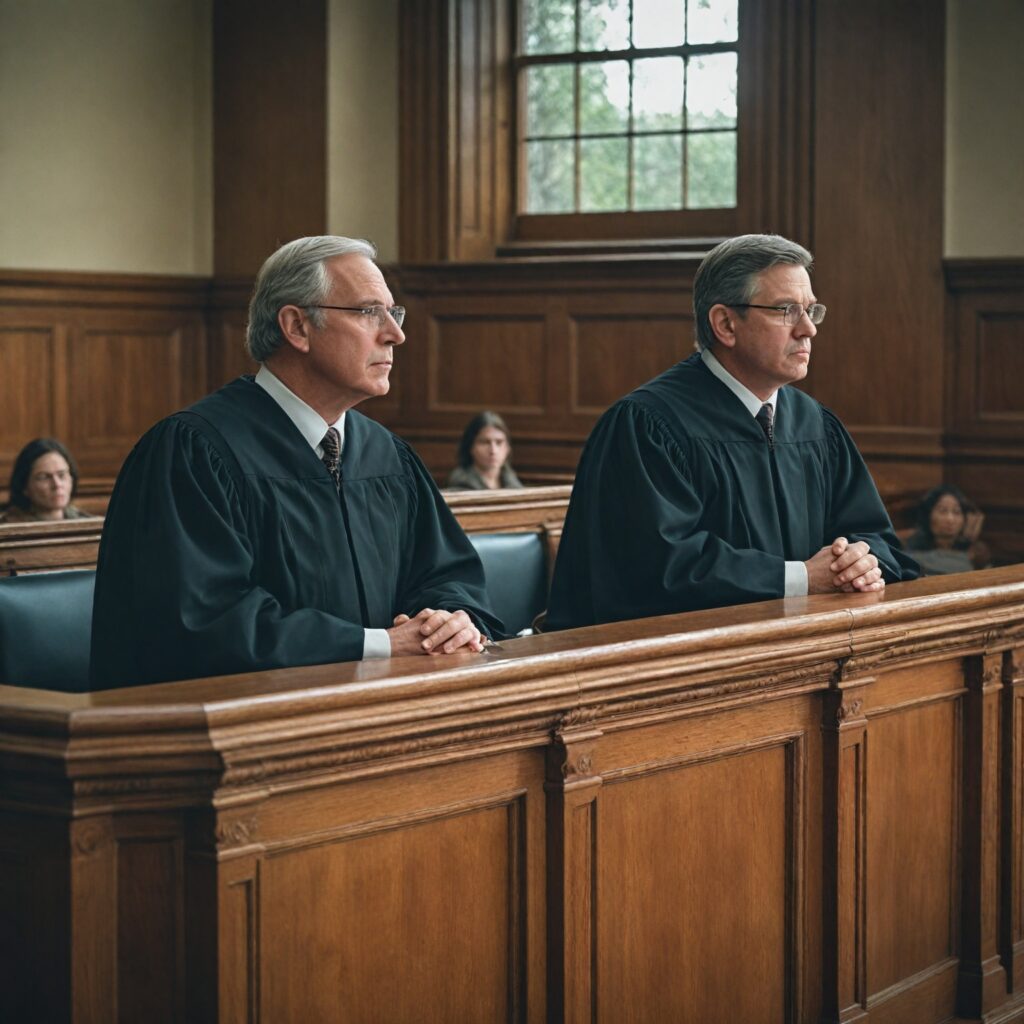
Highlights:
– Climate change activists’ sentences reduced by Court of Appeal, including Just Stop Oil co-founder.
– Roger Hallam and 15 others challenged sentences for demonstrations, some successful.
– Implications of reduced sentences on environmental protests and legal precedents.
Climate Change Activists’ Sentences Reduced: A Legal Turning Point
In a significant legal development, six climate change activists, including the co-founder of Just Stop Oil (JSO), have had their sentences reduced by the Court of Appeal. This ruling comes after Roger Hallam and 15 other protesters were initially jailed for their involvement in demonstrations organized by JSO, which included disruptive actions like climbing on gantries over the M25 and throwing soup over Vincent van Gogh’s famous painting “Sunflowers.”
The activists contested their sentences at the Court of Appeal, arguing that they were unduly harsh. The judges, Lady Chief Justice Baroness Carr, Mr. Justice Lavender, and Mr. Justice Griffiths, ultimately granted reduced sentences to six individuals while upholding the original rulings for the rest. This verdict marks a pivotal moment in legal precedent concerning environmental protests and civil disobedience.
Implications of Reduced Sentences for Environmental Activism
One of the central figures, Roger Hallam, originally sentenced to five years for planning the disruptive protests on the M25, saw his term reduced to four years. Similarly, Daniel Shaw, Louise Lancaster, Lucia Whittaker De Abreu, Cressida Gethin, and Gaie Delap had their jail time shortened following the appeal. This decision could set a new standard for the sentencing of activists engaged in civil disobedience for environmental causes.
The protests led to considerable disruptions, costing the Metropolitan Police over £1.1m and causing around 50,000 hours of delays on the M25. While some protesters saw their appeals rejected, the overall outcome of this legal battle raises questions about the balance between upholding the law and protecting the right to peaceful protest in the face of pressing environmental concerns.
Rethinking Environmental Activism and Legal Boundaries
The reduced sentences for climate change activists reflect a potential shift in how the legal system approaches cases involving civil disobedience for environmental causes. This outcome may embolden future protests while also prompting authorities to reassess their response strategies to such actions. As environmental activism gains momentum globally, the intersection of legal boundaries and activism ethics continues to be a pressing issue.
The Court of Appeal’s decision highlights the need for ongoing dialogue about the impact of climate change activism on society and the appropriate legal responses to these movements. How can the legal system strike a balance between maintaining public order and respecting the right to protest in the context of urgent environmental concerns? What measures could be implemented to address the root causes of civil disobedience related to climate change issues? How might this ruling influence future environmental activism strategies and legal challenges worldwide?
Editorial content by Peyton Hawthorne













